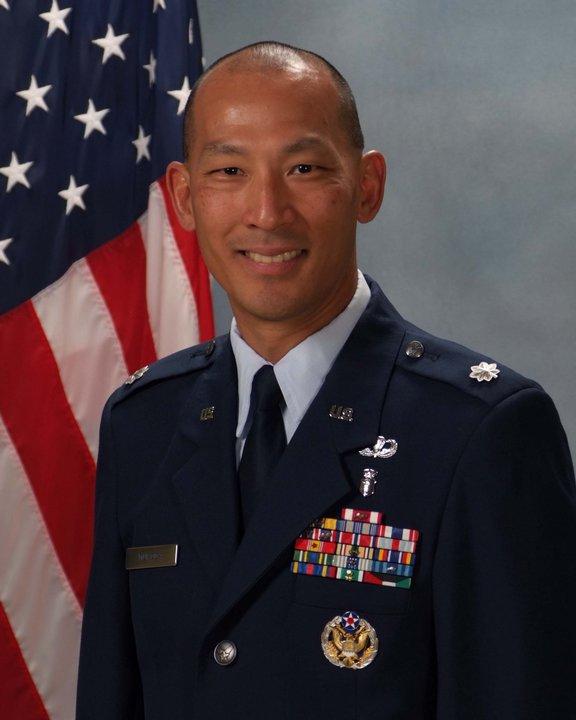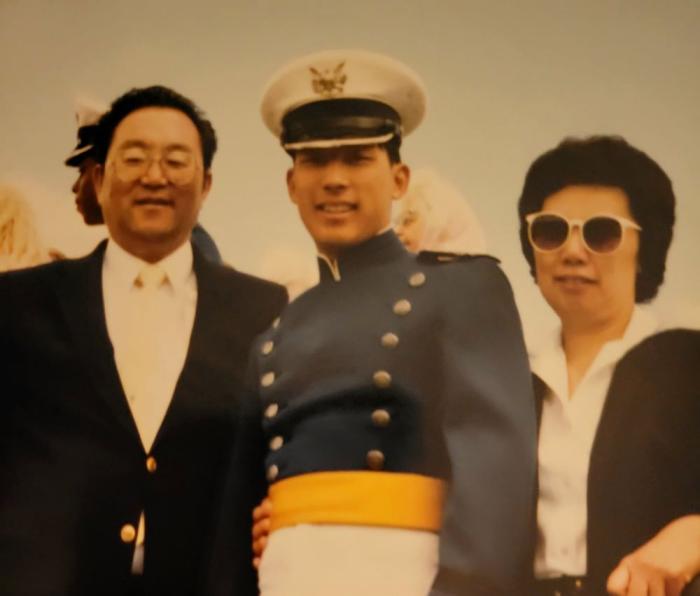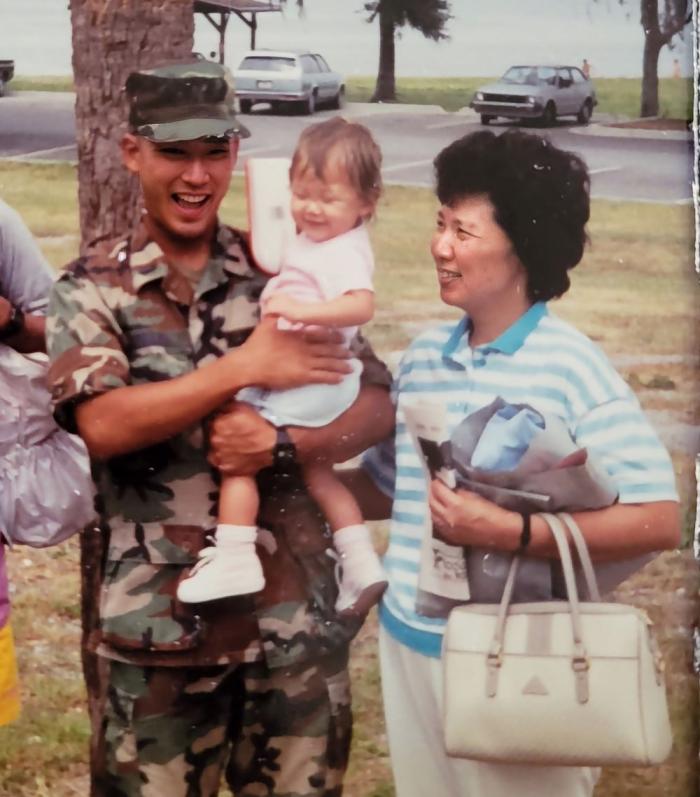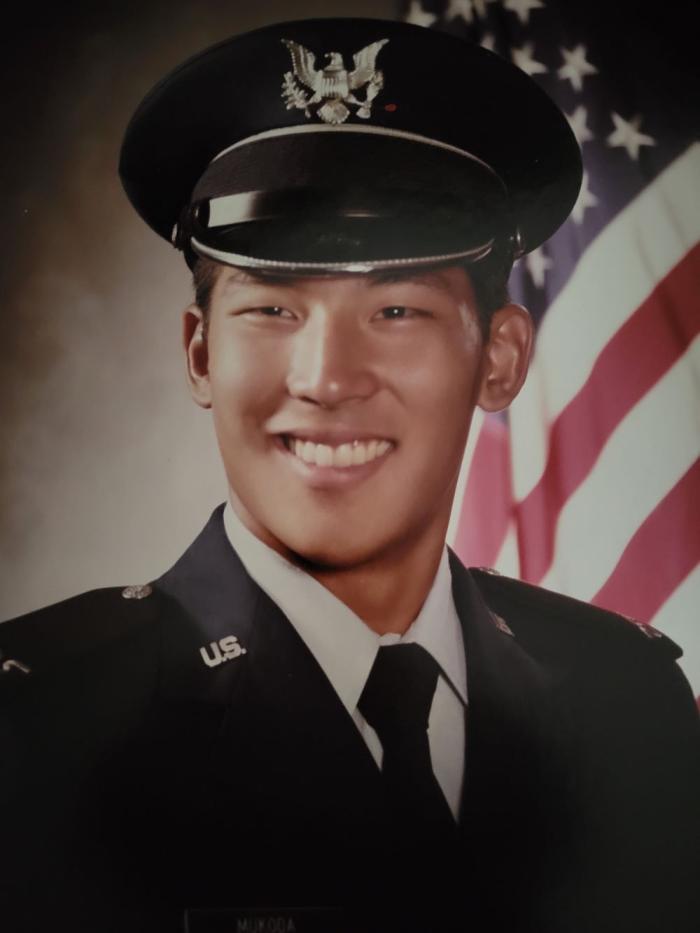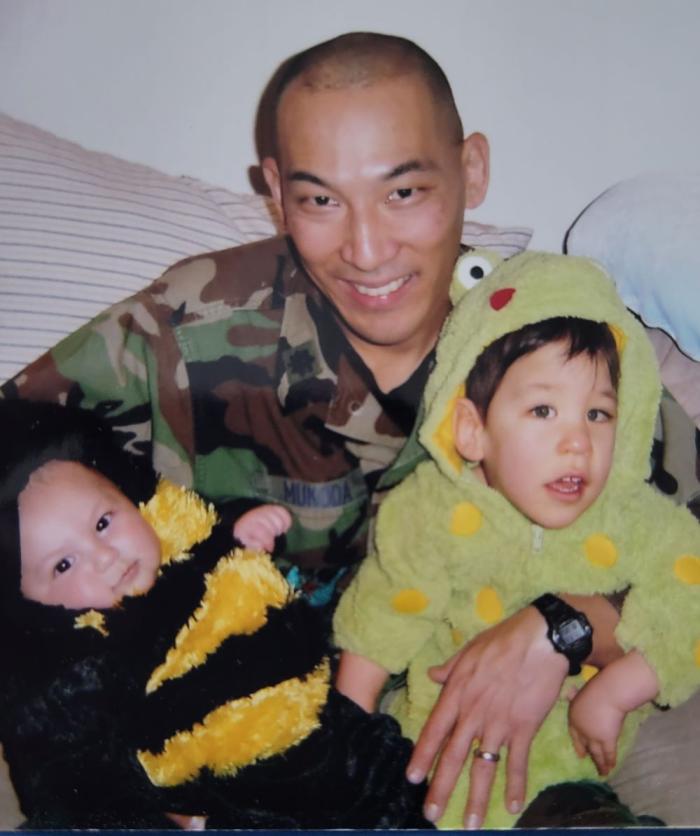Safety manager and veteran focuses on trust, responsibility
In late 2020, as the United States was entering the COVID-19 pandemic’s first winter and the third wave of infections was mounting, Tim Mukoda joined Denver Water as its new safety manager.
He brought with him a career spent looking out for the health and safety of the people around him, including more than 25 years in the U.S. Air Force, from which he retired at the rank of lieutenant colonel in 2012.
He brought his education — including a master’s degree from the University of North Carolina, where his thesis was on infectious airborne diseases, particularly source control and respiratory protection.
And he brought experience gained as the health and safety manager for Osan Air Base in South Korea during the 2003-04 SARS-1 outbreak that started in China, sickened more than 8,000 people around the world and killed 774 people. That outbreak is considered to be the first pandemic of the 21st century.
At Denver Water, Colorado’s largest water utility responsible for providing clean, safe water to 1.5 million people every day, Mukoda found a team committed to its mission — and colleagues committed to the team.
“One of the best things about the military was the relationships and the trust we had in each other as a team,” Mukoda said. “You don’t achieve missions alone, you work with your managers, supervisors and team, and then you learn how to take care of people and do the job right if ever you’re the one in charge.”
“When our safety team talks about our safety vision, mission and values, those things are directly tied to what Denver Water wants to accomplish,” Mukoda said. “It’s all about how we help as a team and how we serve other people, because everyone deserves clean, safe water.”
Veterans are a good fit for water industry careers, and Denver Water has captured the stories of several employees with military backgrounds.
A desire to serve and to learn weaves through Mukoda’s life.
He grew up one of four kids in a blue-collar family in Seabrook, New Jersey. Though money was often tight, his parents emphasized learning and higher education.
“My dad told all of us kids, my older brother and my two younger sisters, ‘You are going to college. I’m just not sure how we’re going to pay for it,’” Mukoda said. “I wasn’t sure what I wanted to study, but I thought the military might be a good option, particularly to help pay for college.”
His dad was drafted into the Army between World War II and the Korean War and served four years, though he never pressured Mukoda and his siblings to join the military.
“My dad wasn’t career military, though those four years were an important part of his life. I always remembered how he talked about his time in the Army,” Mukoda said.
As a high school junior, Mukoda applied to the Air Force Academy in Colorado Springs, kicking off a rigorous screening process that includes multiple tests, interviews and securing a nomination from a member of Congress or the vice president.
Mukoda’s family supported his military service from the beginning.
“My grandmother, my dad’s mom, gave me a one-way plane ticket to get to Colorado for my high school graduation present,” Mukoda said. “It was the first time I’d ever been on a plane.”
Mukoda started with a class of about 1,400 cadets who all were required to maintain good grades and meet military performance standards. About a third of his class either quit or failed during their four years at the academy.
Mukoda graduated — with the rank of Second Lieutenant and a biology degree — and began his military service with a four-month technical school that combined biology, engineering, health and safety.
It was the beginning of a lifelong career.
Toward the end of Mukoda’s mandatory five-year active duty service commitment following graduation, the Air Force offered him a deal. If he stayed for a few more years, they’d pay for graduate school.
“I wanted to get my master’s in environmental science, so it was a good deal,” Mukoda said.
Mukoda applied for a spot in the Civilian Institute Program, which allows military personnel to attend civilian universities for graduate studies.
Then he got a call that changed everything: He was being deployed to Saudi Arabia as part of the 1990-91 Operation Desert Shield/Desert Storm.
For eight challenging months, Mukoda lived and worked alongside troops in Saudi Arabia, gathering health and safety data regarding conditions and possible exposures. And Mukoda relied on what he’d learned at the Air Force Academy.
“At the academy, we learned how to deal with stress,” Mukoda said. “We always focused on the team and our mission — not ourselves — and that was especially important during deployment.”
Then a letter arrived announcing he’d been accepted into the Civilian Institute Program, with a list of approved graduate schools he could apply to. But the letter was more than six weeks old and didn’t include important details, like application deadlines.
It did have a name and phone number to call — if he had questions. And Mukoda had questions.
Clutching his acceptance letter, Mukoda went to the phone bank, where lines of soldiers routinely waited for hours to place a call. The contact picked up Mukoda’s call, but said it wasn’t a good time to talk.
“I practically begged him to not hang up,” Mukoda said. “I told him, ‘I’m in the desert with 40 guys behind me waiting for their turn on the phone. I cannot call you back!’”
Months later, after his deployment ended in April 1991, Mukoda applied to and was accepted into the University of North Carolina’s graduate school. He earned a master’s degree in environmental sciences and engineering with an emphasis on airborne environmental hazards and industrial hygiene — a focus that would be critical during his career.
Noteworthy water news to your inbox each week. Sign up for TAP!
After graduate school, Mukoda traveled the world managing multimillion-dollar contracts and dealing with health and safety issues at different military bases until 1997, when — as the U.S. military downsized dramatically — he separated from the Air Force and shifted to the private sector while remaining in the reserves.
Then on Sept. 11, 2001, terrorists hijacked passenger planes and flew two into the World Trade Center’s Twin Towers in New York City. A third plane crashed into the Pentagon in Arlington, Virginia. Passengers on a fourth plane, Flight 93, fought back and the plane crashed into an empty field in Pennsylvania.
Sadly, one of Mukoda’s Academy classmates, LeRoy Homer Jr., was one of the pilots on Flight 93.
“It was a complete shock to us. He was a great guy and one of the nicest people in our class,” Mukoda said.
Everything was different now.
The Air Force asked Mukoda, still an officer in the reserves, to temporarily return to active duty for a year. But Mukoda had a counteroffer.
“I didn’t want to come back for just a year, I wanted my career back,” Mukoda said. “They happily accepted.”
Newly married, Mukoda was sent to be the health and safety manager at Osan Air Base in South Korea, where tensions were running high.
“The area around Korea is a busy place in general, though we were also on high alert due to weapons testing activity in North Korea,” Mukoda said. “Our base commander had us drill, plan and prepare constantly, and our soldiers were amped up all the time. It’s a hard way to live.”
Several months into his tour, Mukoda started hearing reports about a weird illness in China, later identified as the SARS-1 outbreak.
“No one was really sure what SARS was, so we were posturing for a couple of different things,” Mukoda said. “We were pretty sure it was airborne, but we also worried about other infectious diseases like smallpox and influenza.”
Since Mukoda’s master’s degree thesis was on infectious airborne diseases, particularly source control and respiratory protection, his knowledge and ability to collect research and data immediately went into action.
“The most important thing was advising people how to protect themselves,” Mukoda said.
“We had to watch and learn to see how the disease spread. On top of that, we’d heard about possible sleeper agents who were intentionally going to high-population areas to try and infect other people. It was pretty intense.”
One of the critical things that yearlong tour reinforced for Mukoda was the important roles that trust and responsibility play in creating a culture of safety.
“I worked with some young people who had been in high school six months earlier and had been given an incredible level of responsibility, including tasks involving multimillion-dollar equipment,” Mukoda said.
“We had to train them how to deal with that huge responsibility and trust that they’d take care of both the equipment and the people on their team.”
After that assignment, Mukoda worked in Washington, D.C., focusing on policies and procedures for health and safety. He and his wife had two sons before the family transferred to Peterson Air Force Base in Colorado Springs.
His family loved Colorado, and when the Air Force offered him a teaching position if he’d move again, Mukoda instead decided to retire. He held health and safety roles for several companies in the energy industry before joining Denver Water.
“During my military career, I was blessed with a great support network, and my Air Force career wasn’t just my own,” Mukoda said.
“I did work hard, and I had so many people who made an impact and helped me in big and small ways, especially my parents, grandparents, siblings, extended family and friends.”


